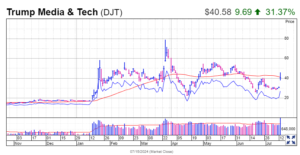
The Central Bank of Nigeria (CBN) has established fixed duty rates for importers paying customs duties to the Nigerian Customs Services during goods clearance.
In a circular posted on its website on Friday, the CBN directed Customs to use the foreign exchange (FX) closing rate on the date of ‘Form M’ submission by importers for goods clearance and duty assessment.
Form M is a necessary document used by importers to declare their intention to import physical goods into Nigeria.
This decision aims to address the volatility and frequent updates on the customs website regarding the liberalization of the foreign exchange market.
Lately, the Nigeria Customs Service, under the guidance of the CBN, has been regularly adjusting the exchange rate for import duties and goods clearance on its website to match the prevailing market rate since the forex market unification in June.
Since the start of the year, the service has adjusted the forex rate almost twice a week. In the latest adjustment, the exchange rate increased from N1537.07 to N1605.82 per USD.
In response to the complaints from members of the public and the business community, the Comptroller-General of the NCS stated during an interview that the service does not fix the exchange rate rather they follow the directive of the CBN on such matters.
The circular read, “To this effect, the Central Bank of Nigeria wishes to advise the Nigeria Customs Service and other related parties to adopt the FX rate on the date of opening the Form M for importation of goods, as the FX rate to be used for import duty assessment. This rate remains valid until the date of termination of the importation and clearance of goods by the importers.
“This would enable the Nigeria Customs Service and the importers to effectively plan appropriately and reduce uncertainties around varying exchange rates in determining revenue, or cost structure respectively.
“Therefore, effective 26th February 2024, the closing rate on the date of opening of Form M for importation of goods and services would be the rate that would apply for assessment of goods and services. This supersedes the requirement of Memorandum 9, J (2) of the Central Bank of Nigeria Foreign Exchange Manual (Revised Edition) 2018.
“While the CBN is mindful of the initial volatility and price distortions in the aftermath of the FX market liberalization, the Bank is confident that these reforms, would in the medium term, ensure stability in the market and entrench market confidence necessary to attract investment capital for the growth and development of the Nigerian economy.”
The Central Bank of Nigeria in June 2023 unified the foreign exchange market in a move geared towards floating the market. Since then, the naira has lost over 100 per cent of its value on the official window.
The weakness of the naira coupled with other fiscal policy initiatives like the removal of fuel subsidy pushed inflation to a 28-year high as of January at 29.90 per cent.
The inflation is mainly driven by food and transport with the former’s inflation rate at 35.4 per cent in January.






Be First to Comment